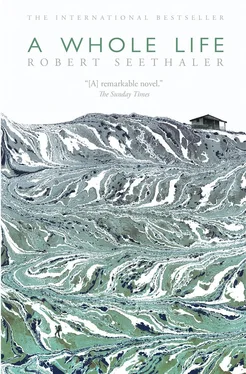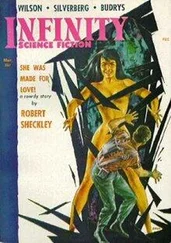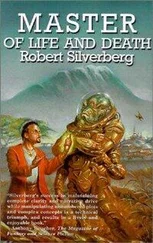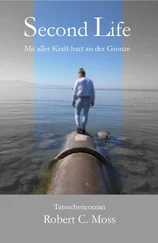Robert Seethaler - A Whole Life
Здесь есть возможность читать онлайн «Robert Seethaler - A Whole Life» весь текст электронной книги совершенно бесплатно (целиком полную версию без сокращений). В некоторых случаях можно слушать аудио, скачать через торрент в формате fb2 и присутствует краткое содержание. Год выпуска: 2015, Издательство: House of Anansi Press Inc, Жанр: Современная проза, на английском языке. Описание произведения, (предисловие) а так же отзывы посетителей доступны на портале библиотеки ЛибКат.
- Название:A Whole Life
- Автор:
- Издательство:House of Anansi Press Inc
- Жанр:
- Год:2015
- ISBN:нет данных
- Рейтинг книги:4 / 5. Голосов: 1
-
Избранное:Добавить в избранное
- Отзывы:
-
Ваша оценка:
- 80
- 1
- 2
- 3
- 4
- 5
A Whole Life: краткое содержание, описание и аннотация
Предлагаем к чтению аннотацию, описание, краткое содержание или предисловие (зависит от того, что написал сам автор книги «A Whole Life»). Если вы не нашли необходимую информацию о книге — напишите в комментариях, мы постараемся отыскать её.
Set in the mid-twentieth century and told with beauty and tenderness, his story is one of man's relationship with an ancient landscape, of the value of solitude, the arrival of the modern world, and above all, of the moments, great and small, that make us who we are.
A Whole Life — читать онлайн бесплатно полную книгу (весь текст) целиком
Ниже представлен текст книги, разбитый по страницам. Система сохранения места последней прочитанной страницы, позволяет с удобством читать онлайн бесплатно книгу «A Whole Life», без необходимости каждый раз заново искать на чём Вы остановились. Поставьте закладку, и сможете в любой момент перейти на страницу, на которой закончили чтение.
Интервал:
Закладка:
For two days Egger crouched alongside two other prisoners in a wooden crate carelessly nailed together and sealed with felt. It had a length and breadth of about one and a half metres and was less than a metre high. He spent most of the time peering out through a slit, trying to glean from the movements around them some hint as to the Russians’ plans, and his own future. When at last, on the third day, the nails were ripped from the wood with a screech and one of the slatted walls fell outwards, the winter light pierced his eyes so brightly that he feared he would never be able to open them again. He could, after a while; but this sensation of piercing brightness, which seemed to fill even his nights with blinding light, stayed with him until long after the end of his wartime captivity, and only disappeared for good many years after his return home.
The transfer to a camp near Voroshilovgrad took six days, which Egger spent in the midst of a group of prisoners herded together onto the back of an open truck. It was a terrible journey. They travelled through cold days and icy nights, beneath a dark sky shredded with shell-fire and across white, open snowfields where the stiff, frozen limbs of people and horses jutted from the furrows. Egger sat on the back of the truck and saw innumerable wooden crosses lining the road. He thought of the magazine Marie had read aloud to him so often, and of how little the winter landscape it depicted resembled this ice-bound, wounded world.
One of the prisoners, a small, stocky man trying to shield his head from the cold with the tattered shreds of a horse blanket, said the crosses were really not as sad as they appeared; they were just signposts indicating the direct route to Heaven. The man’s name was Helmut Moidaschl and he laughed easily. He laughed about the snow that lashed their faces, and he laughed about the bricklike crusts of bread that were dumped out of a sack onto the back of the truck for them to eat. You’d be better off using that bread to build good, solid houses, he said, and laughed so loudly that their two Russian guards laughed with him. Sometimes he would wave to the old women examining the snow-covered corpses for useful items of clothing or food. If you’re on the way to Hell, he’d say, you have to laugh with the devils: it costs nothing, and makes the whole thing more bearable.
Helmut Moidaschl was the first in a long line of people Egger saw die in Voroshilovgrad. The very night they arrived he was seized with a heavy fever, and his screams, stifled by the shreds of his blanket, filled the barracks for hours. The next morning they found him lying dead in a corner, half-naked, doubled over, both fists pressed against his temples.
After a few weeks Egger stopped counting the dead. They were buried in a little birch wood behind the camp. Death belonged to life like mould to bread. Death was a fever. It was hunger. It was a crack in the wall of the barracks and the winter wind whistling through.
Egger was assigned to a team of about a hundred workers. They worked in the forest or on the steppe, cut wood, built low walls with stones from the fields, helped out with the potato harvest or buried the previous night’s dead. In winter he slept in the barracks with about two hundred other men. As soon as temperatures permitted he bedded down outdoors on a pile of straw. Ever since the warm night when someone had turned on the electric light by mistake and thousands of bugs had responded by trickling down from the ceiling, he preferred to sleep in the open air.
News of the end of the war reached Egger in one of the communal toilets. He was sitting on a plank above the cesspit with a swarm of glittering, greenish flies buzzing around him when the door was suddenly wrenched open and a Russian stuck in his head and bellowed, ‘Hitler kaput! Hitler kaput!’ Egger continued to sit there quietly and didn’t respond, so the Russian slammed the door shut and walked away, laughing. His fading laughter could be heard outside for some time, until it was drowned by the wail of the mustering siren.
Less than three weeks later Egger had forgotten the guard’s euphoria and the hopes it had awakened in him. The war was undeniably over, but this fact had no discernible repercussions on life in the camp. The work remained the same, the millet soup was thinner than ever, and the flies still circled unperturbed around the beams of the latrine. Besides, many of the prisoners believed that the end of the war could only be temporary. Maybe Hitler really was kaput, they argued, but behind every crackpot another, far worse crackpot was waiting in the wings, and ultimately it was only a matter of time before the whole thing started all over again.
On an unusually mild winter night Egger sat in front of the barracks wrapped in his blanket and wrote a letter to his dead wife Marie. He had found an almost undamaged piece of paper and a pencil stub during a clean-up operation in a burnt-out village, and slowly, in big, wobbly letters, he wrote:
My dear Marie,
I am writing to you from Russia. It is not that bad here. There is work and something to eat, and because there are no mountains the sky is wider than the eye can see. The only really bad thing is the cold. It’s a different cold to back home. If only I had just one little paraffin sack, like the ones I had so many of back then, it would be all right.
But I don’t mean to complain. There are people lying stiff and cold in the snow and I am still looking at the stars. Perhaps you can see the stars, too. I’m afraid I have to end here. I only write slowly and it’s already getting light behind the hills.
Your Egger
He folded the letter up as small as he could and buried it in the earth at his feet. Then he took his blanket and went back inside the barracks.
It was almost another six years before Egger’s time in Russia came to an end. There was no prior warning of the liberation, but early one morning in the summer of 1951 the prisoners were herded together in the square in front of the barracks, where they were made to strip naked and throw their clothes on top of one another in a great, stinking heap. The heap was doused in petrol and set alight, and as the men stared into the flames the fear that they were about to be shot, or worse, was written on their faces. But the Russians were laughing and all talking loudly at once, and when one of them grabbed a prisoner by the shoulder, pulled him close and proceeded to lead the naked, scrawny spectre in a ridiculous dance around the fire, it began to dawn on most of them that this morning was a good morning.
Furnished with fresh items of clothing and a crust of bread apiece, the men left the camp within the hour to set off on the march to the nearest train station. Egger had slipped into one of the rows at the back. Directly in front of him walked a young man with big, permanently frightened eyes who started gobbling his bread in greedy bites as soon as they set off. When he had swallowed the last scrap he turned again and glanced back at the camp, which already lay some kilometres behind them and was scarcely visible now in the shimmering summer air. He grinned and opened his mouth to say something, but all that came out was a choking sound, and then he began to cry. He howled and sobbed and the tears and snot flowed down his dirty cheeks in wide streaks. One of the older men, tall with a shock of white hair and a disgruntled expression, walked up to the boy, put an arm round his shaking shoulders and told him to stop crying, firstly because all it did was give you a soggy collar, and secondly because bawling was as infectious as horse-fever and bubonic plague put together and he had no desire to spend the two-thousand-kilometre journey home surrounded by grizzling old women. On top of which he’d be better off saving his tears for when he got back, because there’d be plenty more for him to cry about there. The young man stopped weeping and for a long time Egger, walking two steps behind him, could hear the dry sounds he made as he swallowed his tears and the very last crumbs of bread.
Читать дальшеИнтервал:
Закладка:
Похожие книги на «A Whole Life»
Представляем Вашему вниманию похожие книги на «A Whole Life» списком для выбора. Мы отобрали схожую по названию и смыслу литературу в надежде предоставить читателям больше вариантов отыскать новые, интересные, ещё непрочитанные произведения.
Обсуждение, отзывы о книге «A Whole Life» и просто собственные мнения читателей. Оставьте ваши комментарии, напишите, что Вы думаете о произведении, его смысле или главных героях. Укажите что конкретно понравилось, а что нет, и почему Вы так считаете.











